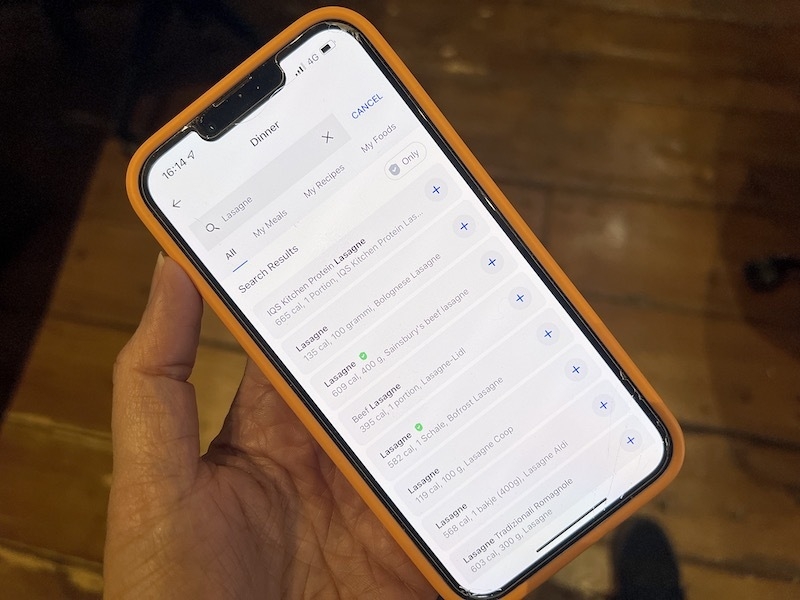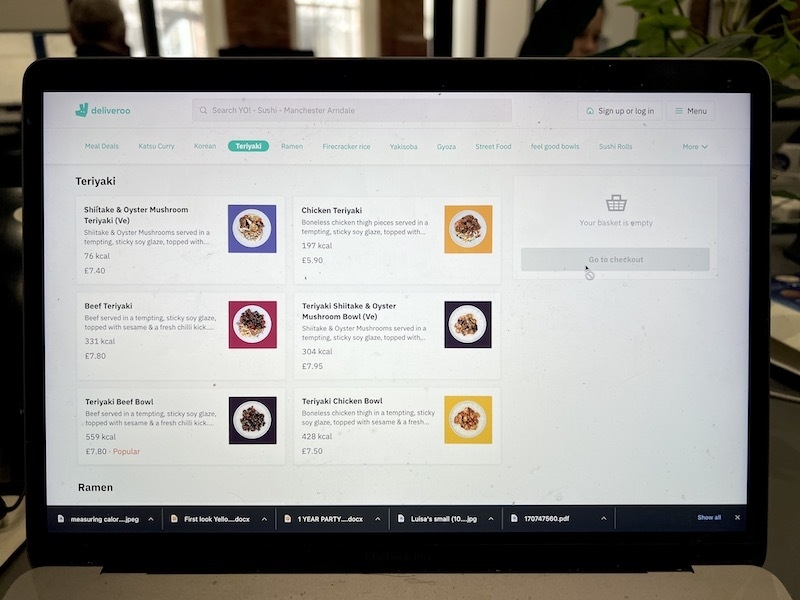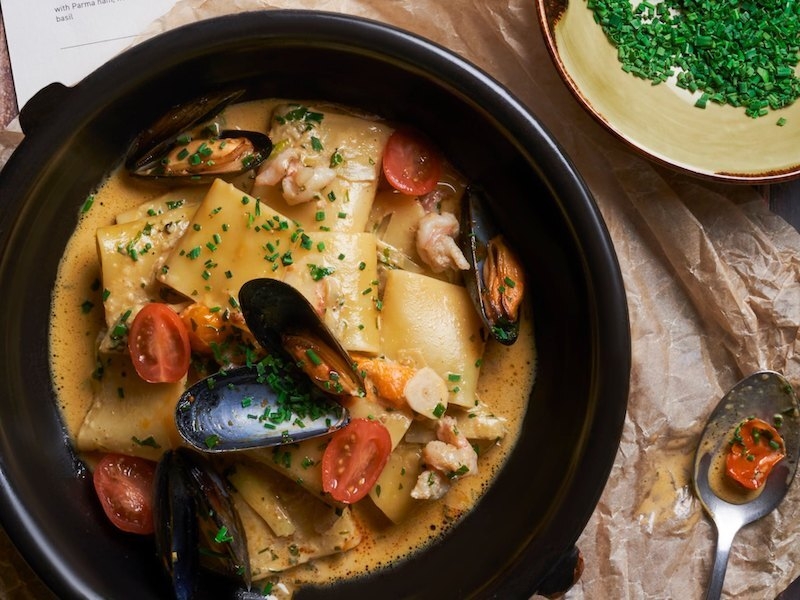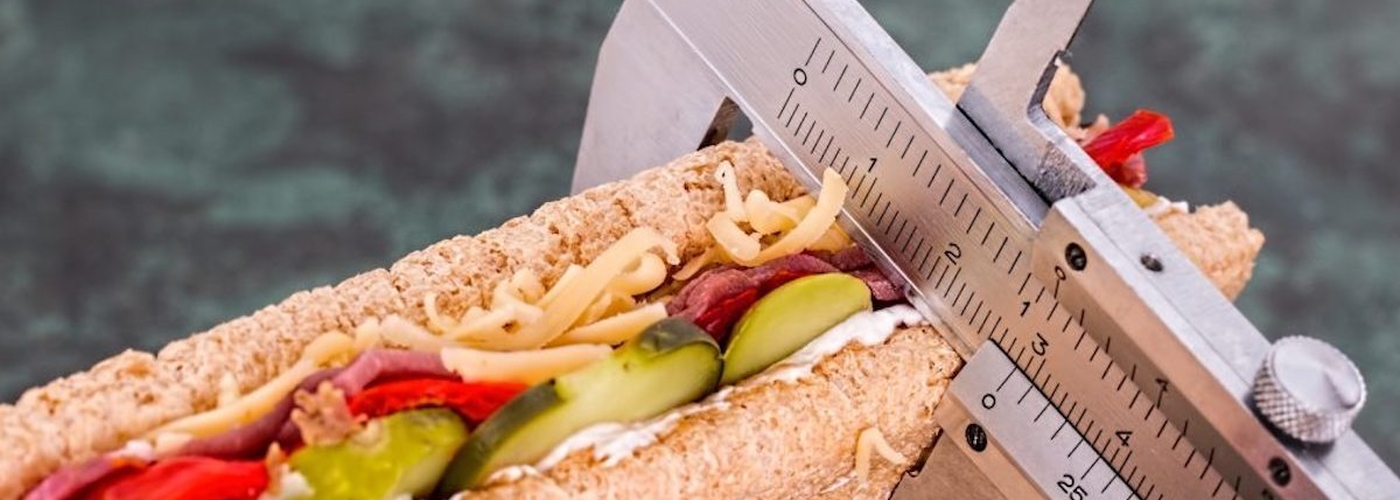Anja Madhvani has some thoughts on the government's menu calorie move
Restaurants, takeaways, and cafes in England and Wales employing more than 250 people are now required to display "calorie information" on their menus. This includes the total number of calories contained in dishes, as well as "recommended daily intake". According to Gov.uk, smaller businesses are also encouraged to do the same.
There are roughly 1.25 million people in the UK with diagnosed eating disorders
I’m one of the writers here at Leeds Confidential with the arduous task of going out for dinner and telling you about it. I’ve also spent the last four years freelancing with a group called Club Soda, we help people to change their relationship with alcohol through proven behaviour change techniques. Outside of writing, I work in the brewing and hospitality industry, and am studying for my qualification to become a Personal Trainer. But as someone with a passion for both food and fitness and a fair bit of experience in behaviour change, I believe this new legislation to be more a lazy box-ticking exercise than a positive step.
What does it mean for restaurants?
The new legislation presents restaurants with an increased workload at a time when the industry is recovering from losses made during the pandemic, and facing the challenges of the cost of living crisis.
Massive kudos to @Dishoom Manchester - I asked for a menu without calories but they didn’t have one so one of the staff (Georgia) took a menu and scribbled out all the calories for me 👏🏼👏🏼👏🏼 pic.twitter.com/hUybGg8JtA
— Sophie Bartlett (@_MissieBee) April 16, 2022
Businesses (employing more than 250 people) must now ensure that calories are not only calculated for each dish but that their kitchen teams are able to adhere to recipes while preparing food, to make sure the dish in front of the customer matches the information shown. Seasonal menus will also bring an increased workload, as the calculations must be done for every new dish (unless it appears on the menu for fewer than 30 consecutive or total days per year). The legislation will be enforced by local authorities with the support of the Department of Health and Social Care, non-compliance could result in a fine of £2500. There is of course a chance that the legislation may incentivise businesses to look at how they can prepare more nutritious meals, though it could be argued that there are more effective ways of encouraging our food industry to make these changes.
Some restaurants including Dishoom are making sure they have menus available on request without the calorie information displayed. Vietnamese cafe chain Pho has displayed calories online since 2013, but is working with registered nutritionist Rhiannon Lambert to try and educate its customers on nutrition (check out this informative Instagram live the restaurant did with her). They’re also sharing tips from other trusted voices on their social media to help people understand the importance of enjoying our food and the experience of dining out as well as considering the nutritional value of our meals.
What is the recommended calorie intake?
A calorie is a unit of measurement for the amount of energy in food and drink. It is a piece of information. But like most information, it is most valuable if you understand how to use it.
The daily recommendation for women is "around 2000 calories" and for men "around 2500". But the amount of energy we need differs considerably between individuals. In order to maintain, reduce, or increase our weight, we need to consider the energy it takes for our body to function, how much we move around day-to-day, and how regularly we exercise. A smaller female with a manual job and a regular exercise regime would need far more than the recommended 2000 calories per day to fuel her body.
The diet industry has produced countless apps and off-the-shelf diet programmes that will tell you that by significantly dropping your calorie intake (1200 calories seems to be the "magic" number) you will lose weight. Eating too few calories is actually harmful and can cause your body to cling to weight in order to protect itself. You may initially lose weight, but you will become increasingly vulnerable to health complications that can affect bone health, menstrual cycles, mental health, and more. You’ll probably become lethargic and grumpy, and the weight loss will plateau. In the majority of cases, 1200 calories simply isn’t enough to sustain an adult body.

Is calorie tracking safe?
Calorie tracking gets a bad rap, I often hear it criticised as obsessive, a disorder within its own right. For the vast majority of individuals, calorie tracking can be done safely and can be an effective tool for gathering data and spotting where changes can be made. I track intermittently through the year to make sure I’m consuming enough protein and to check that my overall consumption is where I think it is. It’s like financial budgeting. I may not check where every penny goes daily, but I know roughly what comes in and out of my account. Now and again, I log into my online banking to ensure everything is in order and that there are no unexpected transactions. Over time, as I deepen my understanding of portion control and hunger cues, I’ll probably stop tracking completely. It’s a temporary tool to help me learn. Calorie tracking is just one tool in the box, there are many other ways to adjust your weight.
So what’s the problem with putting calories on menus?
There are roughly 1.25 million people in the UK with diagnosed eating disorders, and there will be many more who are not yet receiving medical help with disordered eating. For these people, exposure to calorie information can be harmful. A simple safeguarding measure would be to make information about calorie content available on request, rather than as the default. UK eating disorder charity Beat has expressed their disappointment at the new legislation.
Supermarkets display clear nutritional labels on food items. These labels include ingredients, overall calories, and a breakdown of macronutrients. Despite this information being available to us when we do our grocery shop, the obesity rate in the UK has risen gradually year on year, suggesting that as a nation we aren’t using the data provided. How valuable is it then, to add calorie content to restaurant menus? Information is only useful if we know how to apply it. Furthermore, the number of calories in a meal tells us nothing about the breakdown of macronutrients. For diabetics, seeing the carbohydrate content of a meal could be more useful so that they can administer an appropriate amount of insulin. For someone who exercises regularly, understanding the protein density of a meal would be more valuable.

Of course, if we want to lose weight then examining our overall intake will help. But if the average person does not understand how to calculate a suitable calorie intake, what does a number on the menu mean to them? Can they do anything useful with it, or are they simply going to choose foods with fewer calories? Will they be satiated by the lower-calorie meal, and how might that affect their desire to snack later? How does this translate into the way we view the foods we cook at home? The bolognese you cook yourself is unlikely to be as calorific as the one you have at Frankie & Benny’s but will seeing that number on the menu impact your perception of that meal? Weight management is about so much more than numbers, we need to be able to put them into context.
The failings of diet culture
"Dieting" implies a quick fix, a period of temporary restriction in which we reach our goal, and can then return to our previous habits, and so the cycle continues. We need to reframe dieting as lifestyle change, slowly shifting our mindset and habits so that we no longer wish to return to past behaviours. It’s not about restriction, eat the carbs before Marbs.
When it comes to creating sustainable behaviour change, mindfulness is a powerful tool. At Club Soda, when we are helping someone to change their drinking, we don’t just say, "You’re drinking too much, stop doing that". We say, "Hey, it’s ok to be overwhelmed. Here are some steps you can take that are going to help you get started." We empower people to create their own journey toward change. We need that same compassionate guidance when it comes to changing our mindset around food and exercise.

Negative emotions like guilt, fear, or self-loathing - which many will experience when confronted by calories on menus - rarely fuel long-term motivation. This legislation could risk seeding a fearful relationship with food, in the same way that Slimming World ‘syns’ feed into a narrative that we are being ‘naughty’ when we consume something we consider to be a treat. Language is important, foods are not "good" or "bad", "dirty" or "clean", we just need to prioritise some over others.
We all have a level of personal responsibility when it comes to managing our health, but getting started with weight loss isn’t always easy, especially within a capitalist system designed to push us to consume more. Our weight is determined by all manner of factors including genetics, financial status, health conditions, and stress to name a few.
What could I do to get started?
Eating without distraction (scrolling social media, sitting at your computer etc) is a great place to start, try sitting at the table instead of on the couch. This way, you’re less likely to snack mindlessly in front of Netflix, more likely to enjoy your meal and to notice when you are full. Perhaps most importantly, consider your intrinsic motivation. Outside of how you appear to others, what will motivate you to nourish your body? My motivation is that I want to live life in a body that doesn’t cause me pain - and to remain active as I age. Maybe your motivation is being able to enjoy time outdoors with your family, maintain your garden, or be independent in later life.
The best advice I can give you is to relax and choose what you think you will most enjoy when you dine out. Focus on how this moment serves your emotional and social needs, both essential aspects of wellbeing. Of course, you can opt to make more health-driven choices when deciding what to order from the menu, but we are what we do repeatedly, dining out or indulging on holiday is the exception, not the rule. If you really want to adjust your weight, examine how you eat at home, rather than how you eat when you are out enjoying yourself, and consider how you could incorporate more movement into your day. Most importantly, when trying to lose weight, treat yourself with compassion.
Follow Anja Madhvani on Twitter @anja_madhvani



